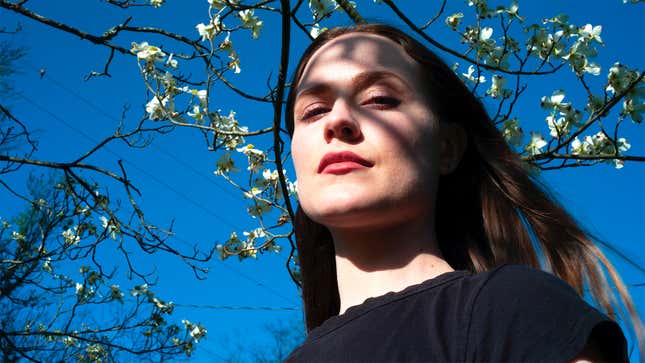Evan Rachel Wood Details Marilyn Manson Abuse Allegations in New Documentary
In Phoenix Rising, which premiered Sunday at Sundance, the actor describes the alleged abuse and her ensuing activism
EntertainmentMovies

In February 2021, Evan Rachel Wood accused her ex, shock rocker Marilyn Manson, of “horrifically abusing me for years” in a brief post on instagram. She wrote that he began grooming her as a teenager and accused him of brainwashing and manipulation. “I am done living in fear of retaliation, slander, or blackmail,” she wrote. “I am here to expose this dangerous man and call out the many industries that have enabled him, before he ruins any more lives. I stand with the many victims who will no longer be silent.”
A follow-up post on her Instagram Stories that week described Manson’s alleged antisemitism and racism, but after that, Wood avoided speaking directly about Manson in public. Until now. On Sunday night, the first of the upcoming two-part HBO documentary Phoenix Rising premiered at the Sundance Film Festival. In it, Wood shares a more explicit version of her side of the story, detailing Manson’s alleged grooming, love-bombing, and attempts to isolate her from her family. She accuses him of violently dragging her through a hotel and says she was “essentially raped on camera” during the filming of Manson’s 2007 video “Heart-Shaped Glasses.”
Phoenix Rising features some candid footage of Wood sorting through her archive to recount her relationship alongside fellow artist/activist Illma Gore, some interviews with Wood’s family, and plenty of footage of Manson being provocative onstage and in interviews; but the documentary’s spine is a simple direct-to-camera interview with Wood. “I’m still terrified to name Brian publicly,” she says early on, referring to Manson by his birth name (Brian Warner) and recalling how he threatened to “fuck up my whole family from the bottom up, starting with my dad.”
Wood describes meeting Manson at a party at Los Angeles’s storied Chateau Marmont in 2006 when she was 18 and Manson was 37. He suggested they collaborate on a film project about the life of Alice’s Adventures in Wonderland author Lewis Carroll. They began hanging out (typically writing together while drinking absinthe) and then, she says, he kissed her one night unexpectedly. The first kiss, she says, made her feel “scared and excited” because “it was like being kissed by a god.” A romantic relationship ensued. Early on, she says, he told her that she was his inspiration to make music and that she and her mother were too enmeshed. From a journal, she reads some of the things he allegedly told her, like, “You’re so important to me I want to kick you.”
-

-

-

-

-

-

-

-

-

-

-

-

-

-

-

-

-

-

-

-

-

-

-

-

-

-

-

-

-

-

-

-

-

-

-

-

-

-

-

-








































